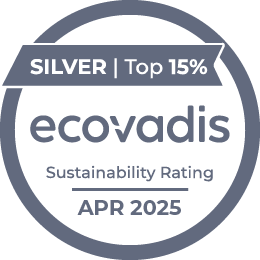ANSMANN strives to avoid and reduce hazardous substances in products in accordance with legal regulations. The use of such substances in electrical and electronic equipment is subject to national and international restrictions. These requirements must be complied with along the entire supply chain. In the EU, these regulations are laid down in regulations, directives and national laws. In addition, ANSMANN fulfills specific customer requirements regarding substance content and documentation.
The EU requirements and other product-specific requirements for the products supplied to ANSMANN are summarized in the annex to this agreement. This annex is an integral part of the agreement and will be updated as required. ANSMANN shall inform the supplier of any updates, which the supplier must check immediately and report any non-compliance in writing.
Suppliers are obliged to provide appropriate evidence of compliance with the following regulations on request.
Legal requirements and regulations
RoHS / ElektroStoffV
EU Directive 2011/65/EU on the restriction of the use of certain hazardous substances in electrical and electronic equipment. Implemented in Germany by the Electrical and Electronic Equipment Ordinance (ElektroStoffV).
WEEE / ElektroG
EU Directive 2012/19/EU on waste electrical and electronic equipment (WEEE). Implemented in Germany by the Electrical and Electronic Equipment Act (ElektroG).
REACH / SVHC
Regulation (EC) No. 1907/2006 of the European Parliament and of the Council concerning the Registration, Evaluation, Authorization and Restriction of Chemicals (REACH). The regulation governs the obligation to register, the inclusion of substances of very high concern (SVHC) in the candidate list in accordance with Article 59, the obligation to authorize certain substances in accordance with Article 56 and the restriction of the use of hazardous substances in accordance with Article 68.
Under this regulation, specific rules also apply to certain groups of substances, including:
PFAS (per- and polyfluorinated alkyl substances)
PFAS are currently regulated via a comprehensive restriction proposal in accordance with Article 68 REACH. The aim is to control and reduce the risks associated with PFAS by restricting their use and manufacture, monitoring the PFAS content in the environment and in products and implementing measures to reduce PFAS contamination and exposure.
Microplastics
Regulation (EU) 2023/2055 amending Annex XVII of the REACH Regulation with regard to synthetic polymer microparticles. This regulation specifically restricts the intentional use of microplastics in products in order to minimize their entry into the environment.
EUDR (EU Deforestation Regulation)
Regulation (EU) 2023/1115 on the prevention of deforestation and forest degradation by certain raw materials and products.
ODS (Ozone Depleting Substances)
Montreal Protocol and EU Regulation 2024/590 on substances that deplete or may deplete the ozone layer.
Conflict Minerals
Regulation (EU) 2017/821 on supply chain due diligence for Union importers of tin, tantalum, tungsten, their ores and gold originating in conflict-affected and high-risk areas.
POPs (Persistent Organic Pollutants)
Regulation (EU) 2019/1021 on the prohibition or restriction of POPs in order to protect human health and the environment by prohibiting or severely restricting the production, use and sale of persistent organic pollutants, minimizing their release into the environment and ensuring the safe management and disposal of waste containing POPs.
PPWR (Packaging and Packaging Waste Regulation)
The new EU regulation replaces the previous Directive 94/62/EC (PPWD) and regulates requirements for packaging and its recyclability. It aims to harmonize national measures for the management of packaging and packaging waste in order to protect the environment and ensure the functioning of the internal market.
BattVO (Battery Ordinance)
Regulation (EU) 2023/1542 on batteries and waste batteries. Requirements for labeling, take-back and recycling. It applies to all types of batteries and obliges companies to comply with environmental and due diligence obligations along the supply chain, including the provision of relevant evidence.
Suppliers must familiarize themselves with regulations outside the scope of the EU. Other regulations apply, including those restricting the use of substances in the USA, the UK and similar countries.
Status: 04.08.2025




